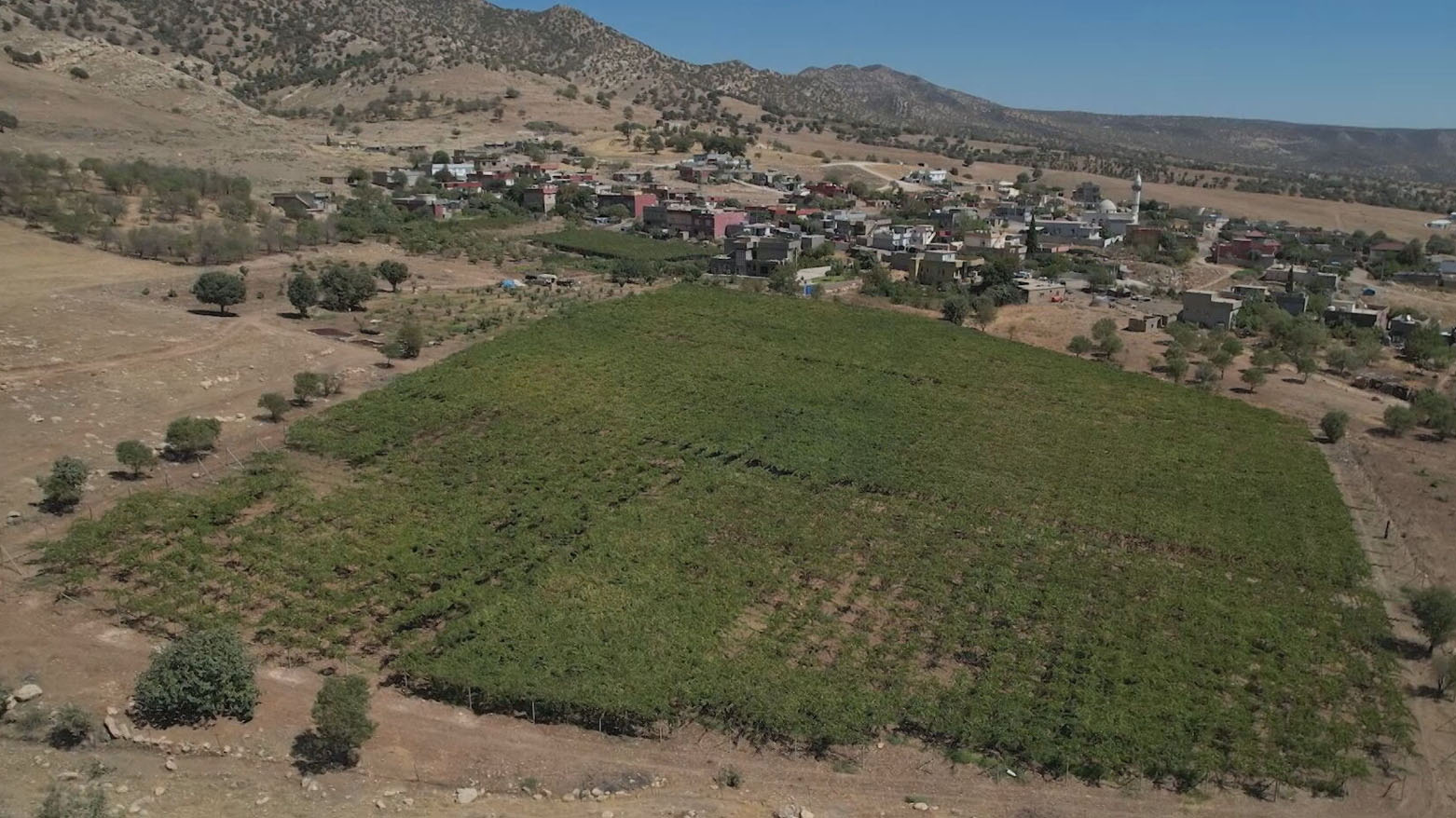The Sound of Progress: Water Pumps Hum as 24-Hour Power Reaches Duhok Farms
The KRG's "Runaki" program is transforming rural life in Duhok, bringing 24-hour electricity to 110 villages. This has resolved critical issues for farmers and families, allowing them to irrigate crops and use appliances on demand, marking a new era of stability and opportunity.

ERBIL (Kurdistan24) – For years, the rhythm of life for farmer Bashar Dergizhinki was a race against the clock, a daily struggle dictated by the whims of a sputtering national grid. In his village of Dergizhinke, nestled within the Mangeshke sub-district of Duhok province, electricity was a precious and fleeting commodity, available for just a few hours in the heart of the afternoon. By the time he could get to his fields, ready to power the water pumps that nourished his diverse crops of eggplant, pomegranates, and grapes, the power would often be cut, leaving his harvest thirsty and his livelihood precarious. But today, a quiet revolution is taking place in his fields. The hum of his water pump is no longer a sound of frantic urgency, but one of calm control, a sound that can be heard whenever it is needed.
"Before, we only had electricity from 12 noon until 3 in the afternoon," he recounted. "But now, we can turn on the water pumps whenever we need to work."
Bashar's experience is a microcosm of a profound transformation sweeping through the rural heartlands of Duhok, as the Kurdistan Regional Government's (KRG) landmark "Runaki Program" extends its reach, bringing the promise of uninterrupted, 24-hour electricity to communities that have long endured the hardships of power insecurity.
His story, and that of his neighbors, is a powerful testament to the human impact of a strategic infrastructure initiative that is not just illuminating homes, but fundamentally reshaping daily life, revitalizing local economies, and restoring a sense of normalcy and opportunity that has been absent for decades.
In the home of Nial Hassan, another resident of Dergizhinke, the benefits are felt in the simple, everyday routines that were once fraught with difficulty.
"The 24-hour electricity has benefited us greatly," she told Kurdistan24. "We can turn on the appliances we need without any issues and use them according to our needs."
Her words capture a newfound freedom—the ability to run a washing machine, preserve food in a refrigerator, or simply light a room without anxiously waiting for the power to return. This is the tangible, people-centered outcome of a project that has now successfully upgraded the electricity service for 110 villages across Duhok province.
This local success is a direct result of the KRG's ninth cabinet's ambitious region-wide strategy, launched by Prime Minister Masrour Barzani in October 2024 to permanently solve a 35-year-old power crisis.
The Runaki program, which means "Lighting" in Kurdish, has been methodically rolled out across the region, with the implementation in the city of Duhok beginning on March 27 of this year. By the end of August, the electricity supply for the entire center of the province had been successfully upgraded to a 24-hour service, ahead of schedule.
Now, the focus has shifted to the surrounding towns and villages, with work currently underway in the town of Semel.
"Our current phase of work is in the town of Semel and its surroundings. Afterward, it will cover all other areas," Hazim Mohammed, the Deputy Director General of Duhok Electricity, told Kurdistan24. "We expect our work to be completed sooner than the scheduled deadline, just as we were able to finish the first phase ahead of schedule."
The impact of this region-wide initiative has been nothing short of transformative.
According to the latest statistics from the KRG Ministry of Electricity, nearly four million citizens—almost 50 percent of the Kurdistan Region's population—are now benefiting from uninterrupted power.
This has had a revolutionary effect on both the environment and public health. By providing a stable national grid, the project has enabled the decommissioning of over 3,200 noisy, polluting neighborhood diesel generators, leading to a massive annual reduction of 600,000 tons of CO₂ emissions.
The Kurdistan Region's Environment Board has scientifically verified the results, confirming that levels of hazardous fine particulate matter in the air have fallen to less than half their previous levels, a change that oncologists believe "will have a very positive impact on reducing the number of cancer patients in the future."
The project has also brought substantial economic relief to households, with a progressive tariff system designed to protect low-income families. Officials have stated that around 80 percent of households now pay less for electricity than they previously did for the combined costs of the national grid and private generators.
This financial breathing room, coupled with the reliability of the power supply, has unlocked unprecedented potential in other sectors, particularly education, where schools can now confidently install and use modern tools like smart boards and data shows.
The success of the Runaki program has earned praise from international partners, including the United States, as a model of successful governance. Prime Minister Masrour Barzani has positioned the initiative as a foundation for social welfare, economic growth, and environmental health, and has even extended an offer to assist the federal government in Baghdad in solving one of Iraq’s most enduring challenges.
But for the farmers and families in the villages around Duhok, the project's significance is not measured in statistics or international accolades. It is measured in the healthy gleam of irrigated crops, in the steady light of a lamp after sunset, and in the quiet confidence that the power, and the promise of a better future, will be there when they need it.